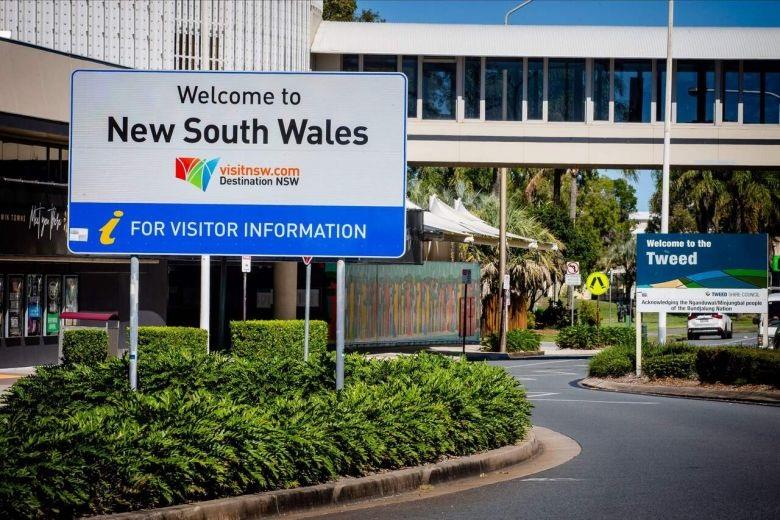SYDNEY, July 6 (Reuters) - Australian officials are closing the border between Australia's two most populous states from Tuesday for an indefinite period as they scramble to contain an outbreak of the coronavirus in the city of Melbourne.
The decision announced on Monday marks the first time the border between Victoria and New South Wales has been shut in 100 years. Officials last blocked movement between the two states in 1919 during the Spanish flu pandemic.
The number of COVID-19 cases in Melbourne, Victoria's capital, has surged in recent days, prompting authorities to enforce strict social-distancing orders in 30 suburbs and put nine public housing towers into complete lockdown. The state reported 127 new COVID-19 infections overnight, its biggest one-day spike since the pandemic began. It also reported one death, the first nationally in more than two weeks,
taking the country's total tally to 105.
"It is the smart call, the right call at this time, given the significant challenges we face in containing this virus," Victoria Premier Daniel Andrews said in Melbourne as he announced the border closure, effective from 11.59 p.m. local time on Tuesday.
The move will, however, likely be a blow to Australia's economic recovery as it heads into its first recession in nearly three decades. Victoria's only other internal border, with South Australia state, is already closed.
New South Wales Premier Gladys Berejiklian said there was no timetable for reopening the border, which will be patrolled by the military to prevent illegal crossings.
The state line is highly porous, with 55 roads, wilderness parks and rivers. Some businesses straddle both sides and several workers commute daily.
Berejiklian said people would be able to apply for daily permits to cross the border, but added there would be delays of around three days in issuing the passes.
The overwhelming majority of news cases detected in Melbourne in recent weeks were from community transmission. Everywhere else in Australia, the vast majority of cases were infected overseas or had been infected by a returned traveler, Berejiklian said.
"What is occurring in Victoria has not yet occurred anywhere else in Australia," she said. "It's a new part of the pandemic and, as such, it requires a new type of response."
NSW Police Commissioner Mick Fuller said he has requested military assistance to enforce the order. "There will be aerial and other surveillance 24/7 right across the border," Fuller said in Sydney.
Australia has fared better than many countries in the coronavirus pandemic, with just short of 8,500 cases so far, but the Melbourne outbreak has raised alarm bells.
The country has reported an average of 109 cases daily over the past week, compared with an average of just 9 cases daily over the first week of June. Although authorities have said the border closure will prevent the latest outbreak from spreading interstate, Melbourne locals are concerned that renewed social distancing measures have not been implemented uniformly across the city.
Kensington is one of the 30 suburbs that have reimposed social distancing measures. The nine public housing blocks that have been subjected to a complete lockdown, Australia's first, are in neighboring North Melbourne and Flemington.
